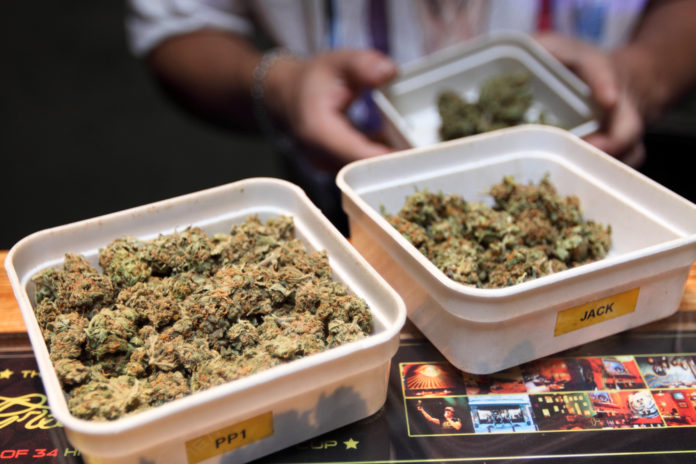TRENTON, NJ – Lawmakers in New Jersey are working to finalize regulations that would legalize recreational cannabis and allow up to 100 dispensaries to open. If legalized, cannabis is expected to create a market worth $850 million in New Jersey, according to industry experts.
After months of debate amongst residents and lawmakers, it seems a bill to legalize cannabis is very close to completion. If enacted, residents 21 and over would be permitted to legally possess cannabis flower and products.
Scott Rudder, president of the New Jersey Cannabusiness Association is also expecting the list of qualifying conditions for medicinal cannabis use to expand. Rudders believe lawmakers are looking to finalize new cannabis regulations soon because the state budget must be approved by the end of June. Lawmakers are already counting on approximately $80 million in tax revenues for the next fiscal year which starts on July 1.
Although a robust market is eventually expected, Rudder feels that legal cannabis will have a slow start in New Jersey.
“You go outside the cannabis space and start talking to people at soccer fields, police chiefs, they’re struggling with this. It may be a slow rollout,” Rudder said at the Cannabis World Congress and Business Exposition, “We’re still trying to convince people that it’s OK. It’s going to be a long conversation.”
California and Nevada also had bumpy rollouts of their recreational cannabis programs. Nevada has recovered and is exceeding initial predictions in terms of sales and tax revenues generated by legal cannabis sales.
The bill submitted by state Sen. Nicholas Scutari calls for a 7 percent sales tax on cannabis products. The tax would rise to 25 percent after the programs first five years. Governor Murphy, who made cannabis legalization a major focus of his campaign, wanted the initial sales tax to be 25 percent. But lawmakers feel this could push customers to the black market. Analysts believe that high tax rates have done just that in California.
New Jersey could run into another issue that has been seen in California. Although Scutari’s bill does not cap the total number of dispensaries, it does give local authorities the power to greatly restrict dispensaries and their location. Many local municipalities have banned cannabis dispensaries in New Jersey. This could also be part of the reason consumers have turned to the black market and officials have collected less in tax revenues than expected.
Also, local authorities can outright pick who they want to issue licenses to. This could create an unfair and possibly corrupt system.
“We do see the opportunity for favoritism and corruption and we have seen that elsewhere,” said Paul Josephson, a Cherry Hill lawyer who advised Murphy during his transition to governor. “The mayor should not be picking winners and losers.”
New Jersey could become the 10th state to legalize cannabis and could be joined by other states such as Michigan. Residents in Michigan will have the opportunity to approve recreational cannabis at the polls in November.










